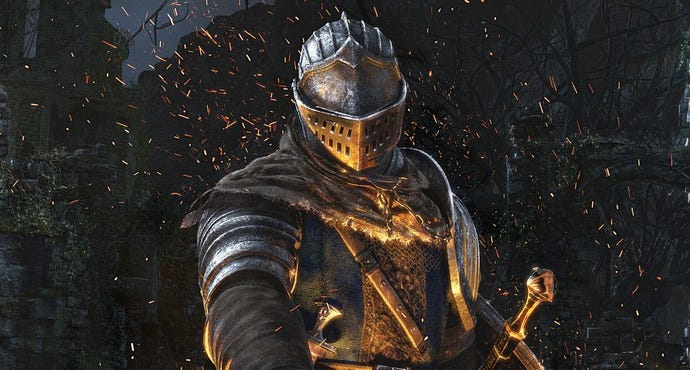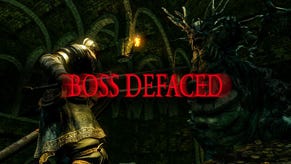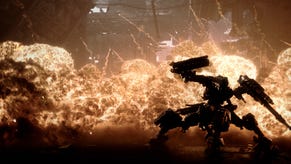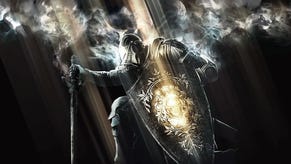Dark Souls Remastered doesn't need to be another Modern Warfare Remastered
It’s impossible for Dark Souls Remastered to please everyone, but that doesn't mean things don't need to be changed.
Remastering Dark Souls in 2018 was never going to be easy. The game is considered among the best in the series, and it’s one of my all-time favourites.
The original Dark Souls came out at a time when From Software wasn’t a name anyone but the few who played Demon’s Souls would recognise. It was most players’ first Souls game, but it’s remembered for being more than just the entry that got everyone hooked.
Dark Souls was the antithesis of popular game design conventions at the time. A game that threw you in a boss fight in the first ten minutes, without ever explaining any of its systems or mechanics. There were no quest logs or waypoints, no masterfully produced cinematics with a sterling voice cast. In fact, Dark Souls is built on mechanics that punish failure more than anyone thought was even possible.
It's as if the game hated you; you were plopped into its vast, interconnected world all on your own. It was you, and you alone, against the darkness.
Dark Souls didn’t look or run particularly great, either, and it certainly didn’t play like any other RPG at the time. Despite all of this, or perhaps because of it, Dark Souls connected with so many people, opening their eyes to a whole new world of RPGs that aren't made by BioWare or Bethesda.
For these reasons and many like them, Dark Souls carries by far the most precious status, both as a game and a pioneer than even its predecessor Demon's Souls. Which is why bringing it back now is going to be problematic anyway you cut it.
There are generally two ways this could go. Namco may truly mean it when it calls it a remaster, not a remake. Each of the two words comes with completely different expectations, and, for many, there's no right answer.
Remasters are typically re-releases where a game is touched up in a few ways, without really changing anything about the core of the experience. Textures will get a resolution bump, lighting will be improved, sound updated, but it’ll still play just like the original. Remasters don’t fix bugs, only the most egregious ones, and they don’t typically change presentation or add cut content.
Crucially, altering gameplay is outside of a remaster's scope. They're useful mainly in bringing older games to modern platforms, the fresh coat of paint is just a bonus. It’s the same game you remember, just prettied up a bit.
The problem with remasters that don’t change anything of substance is that they expose the original’s drawbacks more prominently.
When you load up the original release of Dark Souls today, after having played Dark Souls 3 and Bloodborne, you’ll instantly recognise how clunky the controls and character movement is. The lack of instantly accessible fast travel - a feature From included in every game since - will force you to memorise level layouts and take less risks when exploring.
Core characteristics like Poise, magic gameplay, armour and weapon upgrading will really drive home how outdated many of the decisions From made back then are today. This feeling will be compounded, too, because we’ve seen how much better certain mechanics can be handled in the sequels and and off-shoots without compromising their effect.
Things like the Humanity system and the penalties it comes with will be viewed as frustrating and unnecessary in a game already punishing enough.
You can learn to tolerate these types of problems when you’re playing an old game. You’re ultimately going back knowing what you're getting into, so they’re easier to forgive when you know there’s nothing you can change about an old game.
These quirks can sometimes turn a game into a classic in its own right, a case study of how things used to be. But the minute you’re playing in 60fps on your expensive PS4 Pro in 2018, you’ll begin to see things differently. The last few games you played will inevitably shape your expectations of Dark Souls Remastered.
Like it or not, you will begin to get frustrated with things that have always been there. Whether you’ll admit that is a different story, but you won’t be able to shake the feeling that perhaps this thing we aggrandise so much is not as great as we think.
Remember, Dark Souls isn’t the only Souls game, so many of the things people really liked about the original did return in later games, and they were received just as well without the original’s limitations.
In 2011, it was novel to see most of Dark Souls features in a modern game at all. In 2018, Dark Souls is, for all intents and purposes, a known quantity. You already know what to expect from a From Soft game, and you've already formed an opinion about every decision From has made over the years. When you see classic Dark Souls sitting next to Nioh and Bloodborne, your perspective will shift.
To say nothing of changes in your personal life that will undoubtedly render features you once thought were brilliant as just plain boring.
Of course, there is no easy fix for this. That’s the nature of judging the old, years after it was made, but From Soft has a chance to sidestep all of that if it's willing to take a risk. The studio that first introduced everyone to the genre is capable of bringing this classic into the future without sacrificing what made it great.
But this also means it will have to do away with what has no business being in a 2018 game. No one can truly list the things that made Dark Souls a classic and brush off what can be safely avoided. It’s different for everyone, so while I would complain about the lack of fast travel, someone else will fight for it to remain.
The only one who can decide is From Software, and the studio needs to take a long, hard look and leave nothing off the table. This is what a good remake should do, and it’s the route that From should ultimately be taking.
Activision was in a similar situation a couple of years ago with Modern Warfare Remastered. It ultimately decided not to change anything, and it only helped illustrate how much modern graphics can make a game’s many shortcomings fail it.
Most Modern Warfare maps are unbalanced glitch fests, the weapon balance has always been unfair, grenade launchers ruined games, Stopping Power and Martyrdom are frustrating, and the time to kill is too low. I played probably over 300 hours of the original, and I could list all of these flaws then just as easily as I do now.
The same way that I can say today that PUBG is broken in more – sometimes fundamental - ways than you can count while still enjoying and recommending it. The reason in both instances is the same: these games are pioneers, doing things the rest of the industry will, or already have, borrowed from. Their shortcomings don’t make them bad games, not until someone else comes along and does it better.
If I were to play PUBG ten years from now, after having played potentially many other Battle Royale games by that point, I am likely going to reach the same conclusion.
Modern Warfare Remastered is not a fun game to play today, and only serves as a nice outlet to reminisce about the good old days. Dark Souls will no doubt face the same criticisms if it sticks too closely to the original script. Changes must be made, because introducing a classic to a modern generation is simply far more important than keeping the status quo.
The original Dark Souls will always be here. The PC version looks acceptable downscaled, and with the rest of DSfix’s enhancements, it’s more than playable today. Anyone with a laptop – or the original on Xbox back compat – can download and play From Software’s original vision intact. We don’t need to spend time and money bringing it forward only to realise it will never be as exciting as it was the first time.












